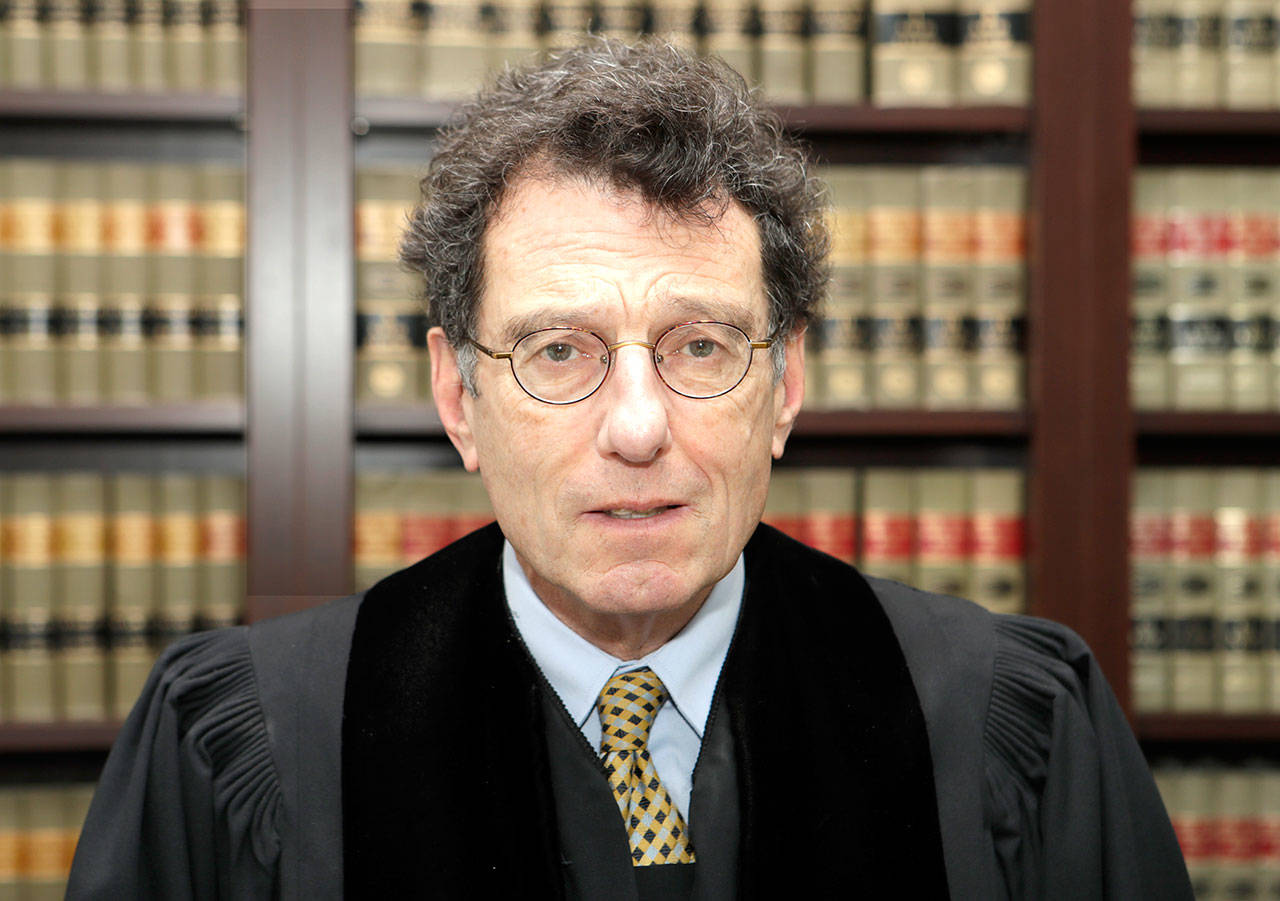Officials across the North Olympic Peninsula are optimistic after the nation’s three biggest drug distributors and a major drugmaker agreed to a last-minute $260 million settlement Monday, averting the first federal trial over the opioid crisis.
The trial, involving Cleveland’s Cuyahoga County and Akron, Ohio’s Summit County, was seen as a critical test case that could have gauged the strength of the opposing sides’ arguments and prodded the industry and its foes toward a nationwide resolution of nearly all lawsuits over opioids.
Clallam County, Jefferson County and the Jamestown S’Klallam Tribe each have filed lawsuits against the manufacturers and distributors of opioids, joining more than 2,300 other jurisdictions seeking to recoup costs for dealing with the opioid epidemic.
“We’re encouraged that the various defendants understand that they have liability and will be spending money to alleviate the crisis and to prevent a recurrence of the crisis,” said Clallam County Chief Civil Prosecuting Attorney David Alvarez. “We just want to continue to monitor it through our law firm … and we’re very excited that there is a strong possibility that many of the cases will settle rather than go through a very litigious, very complicated court case.”
Drug distributors AmerisourceBergen, Cardinal Health and McKesson will pay a combined $215 million, said Hunter Shkolnik, a lawyer for Cuyahoga County.
Israeli-based drugmaker Teva will contribute $20 million in cash and $25 million worth of generic Suboxone, a drug used to treat opioid addiction.
Across the U.S., the pharmaceutical industry still faces more than 2,300 other lawsuits over the deadly disaster. Participants in those cases said the Ohio deal buys them time to try to work out a nationwide settlement of all claims.
“I think it’s a good first step toward a resolution of the multi-district litigation,” said Jefferson County Chief Civil Prosecuting Attorney Philip Hunsucker.
Jefferson County and Clallam County are represented by the same law firm, Keller Rohrback.
The barrage of lawsuits was brought against drug manufacturers, suppliers and sellers by state and local governments, Native American tribes, hospitals and others. For nearly two years, U.S. District Court Judge Dan Polster in Ohio has been pushing the parties toward one big settlement.
The only defendant left in the trial that had been scheduled for Monday is the drugstore chain Walgreens. The new plan is for Walgreens and other pharmacies to go to trial within six months.
Jamestown S’Klallam Tribe Chair and CEO Ron Allen said the settlement has him optimistic for the outcome of the tribe’s lawsuit as well.
He said the tribe’s lawsuit has been separated from the other jurisdictions’ lawsuits and that there are two different test cases, filed by tribes, that will shape how the litigation moves forward.
“Most of us in Indian Country, the 573 Indian nations, are aggregated and we’ve been assigned a different process,” Allen said. “Those two test cases are going to help determine the final outcome.”
Data obtained by The Washington Post and released earlier this year painted a more clear picture as to just how many opioid pills were sent to each county.
That data showed that prescription pain pills poured into Clallam County at a greater rate per person than in almost any other county in the Pacific Northwest from 2006 through 2012.
Data obtained by The Washington Post shows that during that time Clallam County received 37,838,060 pain pills — or 76.6 pills per person per year. That’s more pills per person than any other county in Washington state and more than all but a handful of counties in the entire Pacific Northwest.
Jefferson County received 28.2 pills per person per year, well below the state average of 45 pills per person per year.
Industry CEOs and attorneys general from four states met Friday in Cleveland, where the offer on the table was a deal worth potentially $48 billion in cash and addiction-treatment drugs to settle cases nationally.
Those attorney generals reiterated Monday that they have worked out a “framework” for a settlement. They said they hope other states and local governments sign on.
“We’ll get some piece of it,” Alvarez said. “We don’t know how much it is, but we’ll get something. Down the road we’ll definitely get a piece of it, I believe.”
________
Reporter Jesse Major can be reached at 360-452-2345, ext. 56250, or at jmajor@peninsuladailynews.com.
Jefferson County reporter Zach Jablonski can be reached at 360-385-2335, ext. 5 or at zjablonski@peninsuladailynews.com.
The Associated Press contributed to this report.

